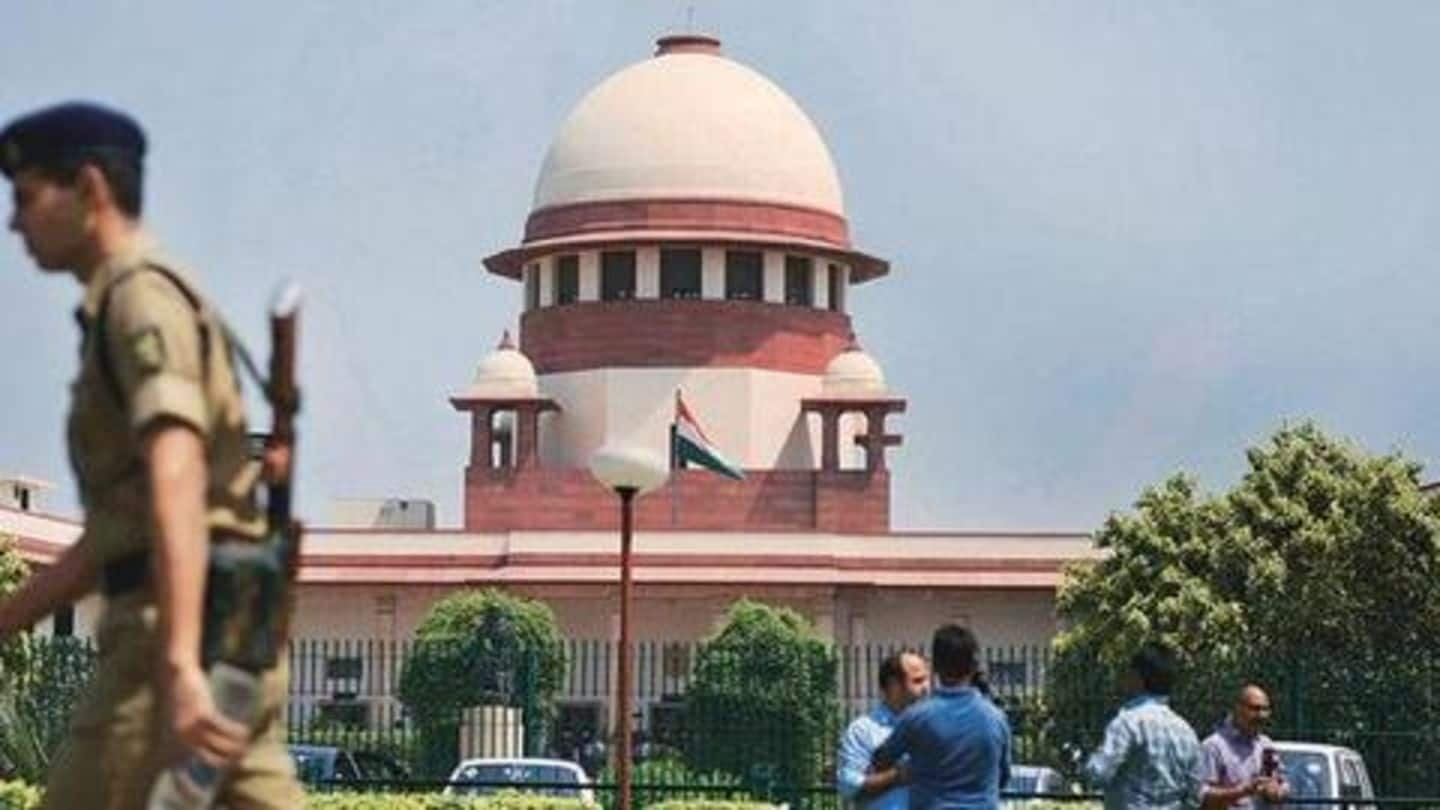
#AyodhyaDispute: SC reserves orders to refer Ayodhya case to mediator
What's the story
The Supreme Court has begun the crucial hearing on the decades-old Ram Janambhoomi-Babri Masjid Ayodhya land dispute case, days after suggesting "mediation" to resolve the issue. The apex court reserved orders on whether the case should be referred for mediation even as the Hindu parties, except for Nirmohi Akhara, oppose the proposal while Muslim petitioners support it. Here's more.
Quote
Mediation is a futile exercise: Hindu Mahasabha
During the hearing, the Hindu Mahasabha rejected SC's "mediation" proposal, arguing, "Mediation is a futile exercise. Let the court decide. Public will not agree for mediation." Justice SA Bobde, however, snubbed the lawyer representing Hindu Mahasabha for rejecting "mediation" to resolve the dispute.
Details
Don't pre-judge; We are trying to mediate: Justice Bobde
"You (Hindu Mahasabha) are saying it (mediation) will be a failure. Don't pre-judge. We are trying to mediate," Justice Bobde said. "We think it (the Ayodhya dispute) is not an issue of land but sentiments and faith. We are conscious of the impact of body politics of the country. It is about mind, hearts, and healing," he added.
Hindu parties
Belief that site is Lord Ram's birthplace is non-negotiable: Advocate
Opposing mediation for resolving the Ayodhya case, the Hindu parties today told the court that the Ayodhya case is not a "mere property dispute" but an issue concerning "faith and sentiments". Representing Ram Lalla, senior advocate CS Vaidyanathan submitted, "The belief that the site is the birthplace of Lord Ram is non-negotiable. We are ready to crowd-fund the construction of a mosque elsewhere."
Quote
Have no control over what happened in the past: Bobde
"We are trying to tell you we have no control over what happened in the past, who invaded, who was the king, temple or mosque. We know about the present dispute. We are concerned only about resolving the dispute," said Justice Bobde.
General Public
If mediation is ordered, general public should participate: Hindu groups
The Hindu parties said that if mediation in Ayodhya case is ordered, then a public notice under Order 1 Rule 8 of the Code of Civil Procedure should be issued, allowing the general public to participate, reported Live Law. While the Hindu groups opposed, the Muslim parties, on the other hand, said that they are open to mediation, expressing the willingness to participate.
Quote
Muslim petitioners are agreeable to mediation: Senior Advocate Rajeev Dhavan
Representing the Sunni Waqf Board in the Ayodhya case, Senior Advocate Rajeev Dhavan asked the CJI Ranjan Gogoi-led Constitution Bench of Supreme Court to frame terms for mediation. He said, "Muslim petitioners are agreeable to mediation and any compromise or settlement will bind parties."
Mediators
Top court asks parties to submit names of mediators
Reserving orders on court-monitored mediation, the SC's five-judge Constitution Bench said if the parties in the Ayodhya case want, they can submit by today the names of persons who can act as mediators in the dispute. However, Senior Advocate Vaidhyanathan, appearing for the Ram Lalla deity, said that they will not submit the name of any mediator to the apex court.
About
A little about the Babri Masjid-Ram Janmabhoomi dispute
On 6 December 1992, thousands of right-wing activists razed down the Babri Masjid, claiming that it was built on a temple; this temple had special significance as it was considered the birthplace of Lord Ram. Since then, the 16th-century site has been disputed. After the Babri Masjid demolition, the country had witnessed Hindu-Muslim riots that killed about 2,000 people.
Allahabad HC
14 petitions filed in SC against Allahabad HC verdict
As many as 14 pleas have been filed in the Supreme Court challenging the Allahabad High Court's judgment in four civil suits in the Ayodhya matter. The HC in 2010 had ruled the disputed 2.77-acre land in Ayodhya be divided equally among the three parties: Ram Lalla (represented by Hindu Maha Sabha, for the Ram temple construction), the Sunni Waqf Board, and Nirmohi Akhara.
Information
Allahabad HC judgment rejected by stakeholders
However, all the stakeholders of the Ayodhya land dispute case had rejected the judgment delivered by the Allahabad High Court in 2010 in the matter and then appealed in the Supreme Court.